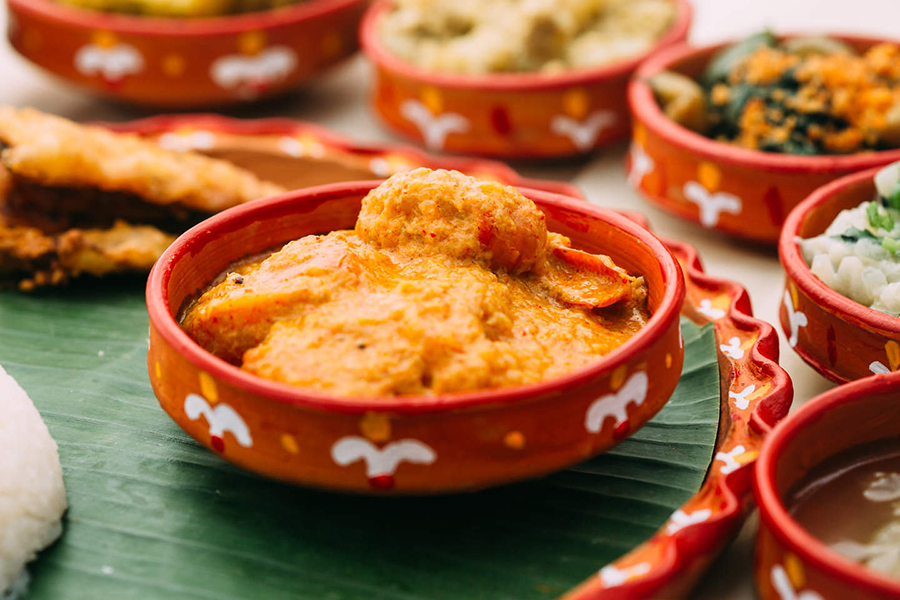
They were mostly Cantonese tradesmen and sailors, bringing with them monosodium glutamate and sweet corn. With this identity came Chinese food, available at almost every street corner in Kolkata. Chinese of Kolkata form a substantial and successful community with a distinct identity. The Chinese of Kolkata originally settled into a village called Achipur south of Kolkata in the late 18th century, later moving into the city and finally into its present home in Tangra at the eastern edge of Kolkata, which still houses over 100,000 ethnic Chinese. The result is a unique cuisine, local ingredients adapted to French and Italian cooking techniques-characterized by creamy sauces, the restrained use of spices and new techniques such as baking.

These collective western influences are seen in the foods created to satisfy the tastes of the western rulers. Bangladesh today shows a much greater Muslim influence than West Bengal.Īnglo-Indian food isn't purely the influence of the British Bengal was once the home of a French colony, and also hosted populations of Portuguese, Dutch, Armenians and Syrians. The partition of India in 1947 resulted in a large migration of people to and from present-day Bangladesh, resulting in a much stronger divide along religious lines. Dhaka (the present-day capital of Bangladesh), in particular, expanded greatly under Mughal rule. Islam arrived in Bengal probably around the mid-thirteenth century, coming into force with the penetration of the Muslim rulers from the northwest. Ganguram's)and street foods of Kolkata and West Bengal many famous sweet shops in the state have Marwari origins.īengali food today has some broad (though not so distinct) variations - Traditional, Mughal, Anglo-Indian and Chinese. Their influence has been, in particular, in the sweet shops (e.g. Its offices, ports and bazaars attracted many communities from the rest of India, most notably the Marwari community, millions of whom have made the city their home for three generations. After partition, Kolkata continued to wield an outsize influence in the cultural and food habits of West Bengal. The city quickly became one of the largest and richest in the world, completely overshadowing Dhaka. Kolkata was founded by the British, and came into prominence as the original capital of British India. While the religion propagated in the populace, the region remained isolated from the political and religious centers of Christian India. The Christian influence came to Bengal a few hundred years after its arrival on the Western borders of India. West Bengal came under Muslim influence only when Murshid Quli Khan became the governor of Bengal and moved the capital from Dhaka to the newly founded city of Murshidabad in the late 17th century.Ĭhristianity and other European influences

Trade routes going from Delhi to Dhaka traversed the entire width of today's West Bengal but seems to have little influence beyond that.

However, for over five hundred years the center of Muslim rule in Bengal was centered in Dhaka. īengal (before its partition into eastern and western parts) has been ruled by Muslim rules since the Delhi Sultanate in early 12th century. It also saw a fair share of immigrants from various parts of the world - most prominently Jews, Chinese and Afghans who settled down in their own distinct communities in and around Kolkata. Originally inhabited by Dravidians and other ethnic groups, and later further settled by the Aryans during the Gupta era, Bengal fell under the sway of various Muslim rulers from the early thirteenth century onwards, and was then ruled by the British for two centuries (1757–1947). Be prepared to experience a gastronomical delight of one of the most varietal cuisine in India.īengali food has inherited a large number of influences, both foreign and South Asian, arising from a turbulent history and strong trade links with many parts of the world. If you haven't yet visited this uniquely beautiful land and tasted its unique cuisine, we shall take you for a ride in the myriad cultural cuisine that Bengal has to offer. The people of Bengal farm the fertile Ganges Delta for rice and vegetables and fish the regions myriad rivers. Bengal or, as she is lovingly referred to, "Sonar Bangla“(Golden Bengal), is made up of the Indian state of West Bengal and the country of Bangladesh (formerly East Bengal).


 0 kommentar(er)
0 kommentar(er)
